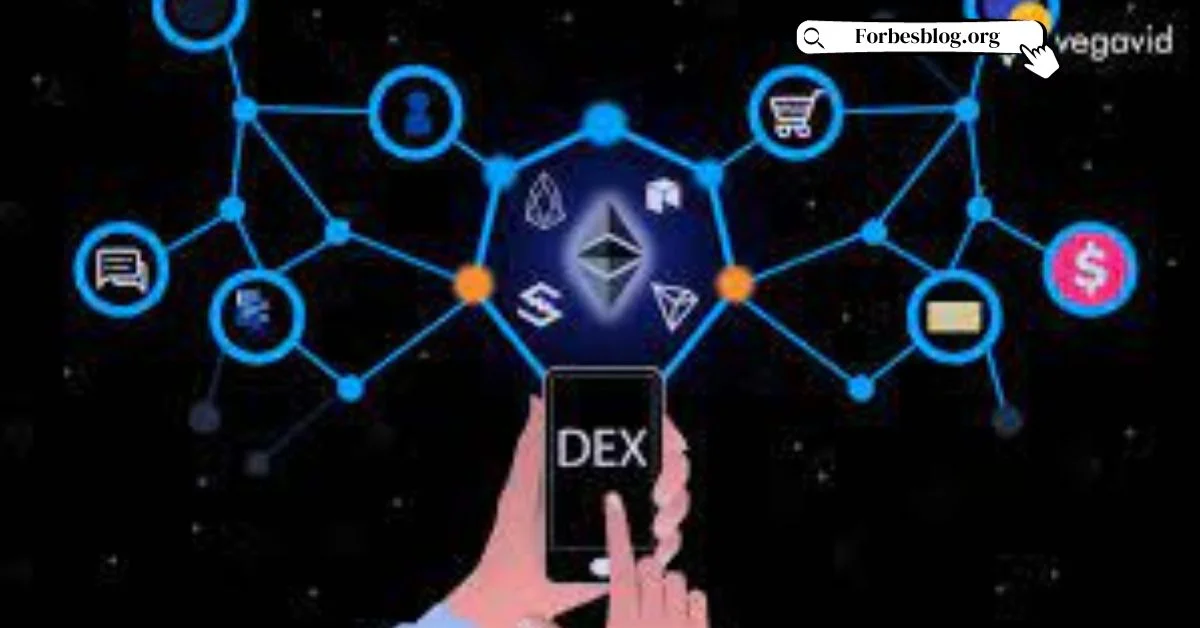Blockchain isn’t only about money, as businesses are increasingly realizing. Developers have been testing the Ethereum platform by creating decentralized applications (Dapps) that are distinct from their centralized counterparts — centralized applications – since it was launched. Unicsoft – a dapp development company, like no one, knows about all the nuances of this type of application and is always ready to provide an effective solution for any purpose.
Table of Contents
The letter ‘D’ stands for decentralization.
If you’re wondering why Dapps has become such an appealing proposition for Dapp creators, you should realize that the decentralization component is a big part of it.
The “d” in Dapps is an important distinction between Dapps and apps. Dapps move an application’s focus and actual implementation away from a centralized network and onto a decentralized network. The decentralized network is made up of users who have no control over any part of Dapp’s performance.
The majority of the common online apps we use every day presuppose the existence of a central server and a central corporation (or several companies). The app’s functions are managed, controlled, and crucial choices are made by the central authority. The bulk of app resources is controlled and allocated centrally, according to the will of central power.
Dapp’s development tipped the scales in favor of end-users, who may now connect to the blockchain network via a decentralized server network and have a more democratic say in decision-making.
How Do Dapps Build Trust?
The process of establishing network trust is another key difference between applications and Dapps. Users trust traditional applications because of their historical success and corporate reputation. It is frequently backed up by middlemen who act as a guarantee for the service’s quality while simultaneously pursuing their own business strategy. The majority of card payment processors fall under the middle group.
The technology underpins the process of establishing trust in Dapps. Developers may use blockchain technology to construct immutable, permanent software solutions by using network-wide consensus decision-making mechanisms. In this approach, confidence is built into the technology without the need for reputational or legal evidence.
Dapps are open-source, which implies that the code may be freely shared between dApp developers. The majority of centralized apps, on the other hand, are commercial enterprises that do not enable code exchange.
Models of Finance
Dapps, unlike apps, have alternative revenue structures. Dapps aren’t reliant on monetary value from outside sources. Instead, they hold value in the program itself, allowing the creators to issue currencies as tokens, produce value through application activities, and trade the tokens on financial markets.
Internal finance models are used by Dapps in a way that serves as a motivation for investing labor as well as a means of trade. This does not imply that Dapps are just for financial gain. Many Dapp development efforts, for example, in supply chains, are focused on discovering alternative alternatives to constructing user chains without multiple middlemen and excessive fees, rather than focusing on the token as a major goal.
Security in Apps vs. Dapps
Dapps are distributed across a peer-to-peer network, eliminating the need for a central server and its associated security risks. Hackers may be more likely to target a single central location, posing a security risk to the entire program. Dapps, on the other hand, have dispersed security and are less likely to be severely harmed by assaults.
Dapps have the potential to alter the way we trade cash, buy products and services, and exchange value in general as a new sort of corporate organization. The subject of whether Dapps will dethrone regular web apps has to be investigated further. Dapps’ ability to self-sustain through rewarding participation, on the other hand, has the potential to transform the way we handle payments, as well as how we employ computer power and data storage. The most intriguing possibility of Dapp development is the establishment of peer-to-peer markets where users can conduct transactions in a cheaper, safer, and faster manner without the involvement of third parties who merely add additional costs and make the process longer and more onerous.
Follow the link now and get more info.














